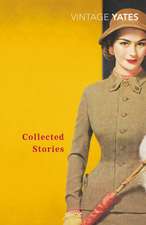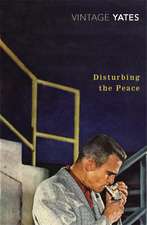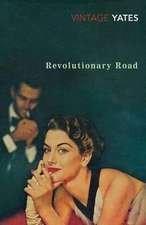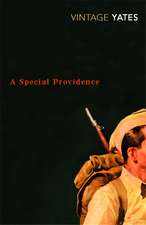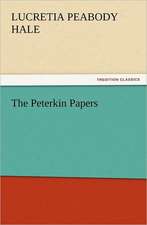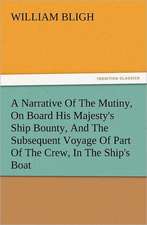Extras
Chapter OneBy the time he was twenty-three, Michael Davenport had learned to trust his own skepticism. He didn't have much patience with myths or legends of any kind, even those that took the form of general assumptions; what he wanted, always, was to get down to the real story.He had come of age as a waist-gunner on a B-17, toward the end of the war in Europe, and one of the things he'd liked least about the Army Air Force was its public-relations program. Everybody thought the Air Force was the luckiest, happiest branch of the service--better fed and quartered and paid than any other, given more personal freedom, given good clothes to be worn in a "casual" style. Everybody understood, too, that the Air Force couldn't be bothered with the petty side of military discipline: Flying and daring and high comradeship were esteemed over any blind respect for rank; officers and enlisted men could pal around together, if they felt like it, and even the regulation Army salute became a curled-up, thrown-away little mockery of itself in their hands. Soldiers of the ground forces were said to refer to them, enviously, as fly-boys.And all that stuff was probably harmless enough; it wasn't worth getting into any arguments about; but Michael Davenport would always know that his own Air Force years had been humbling and tedious and bleak, that his times in combat had come close to scaring the life out of him, and that he'd been enormously glad to get out of the whole lousy business when it was over.Still, he did bring home a few good memories. One was that he had lasted through the semifinals as a middieweight in the boxing tournament at Blanchard Field, Texas--not many other lawyers' sons from Morristown, New Jersey, could claim a thing like that. Another, which came to take on philosophical proportions the more he thought about it, was a remark made one sweltering afternoon by some nameless Blanchard Field gunnery instructor in the course of an otherwise boring lecture."Try to remember this, men. The mark of a professional in any line of work--I mean any line of work--is that he can make difficult things look easy."And even then, brought awake among the sleepy trainees by that piercing idea, Michael had known for some time what line of work it was that he wanted eventually to make his mark in as a professional: he wanted to write poems and plays.As soon as the Army set him free he went to Harvard, mostly because that was where his father had urged him to apply, and at first he was determined not to be taken in by any of the myths or legends of Harvard, either: he didn't even care to acknowledge, let alone to admire, the physical beauty of the place. It was "school," a school like any other, and as grimly eager as any other to collect its share of his GI Bill of Rights money.But after a year or two he began to relent a little. Most of the courses were stimulating; most of the books were the kind he had always wanted to read; the other students, some of them, anyway, were turning out to be the kind of men he had always craved as companions. He never wore any of his old Army clothes--the campus was crawling then with men who did, and who were largely dismissed as "professional veterans"--but he kept the modified handlebar mustache that had been his only affectation in the service, because it still served the purpose of making him look older than his years. And he had to admit, now and then, that he didn't really mind the light that came into people's eyes, or the quickening of their attention, when they learned he had been an aerial gunner--or that his playing it down seemed only to make it all the more impressive. He was prepared to believe that Harvard might, after all, provide a good-enough environment for learning how to make difficult things look easy.Then one spring afternoon in his junior year--all bitterness gone, all cynicism drowned--he wholly succumbed to the myth and the legend of the lovely Radcliffe girl who could come along at any moment and change your life."You know so much," she told him, reaching across a restaurant table to grasp one of his hands with both of her own. "I don't know any other way to put it. You just--know so much."The Radcliffe girl's name was Lucy Blaine. She had been chosen for the leading role in Michael's first halfway decent one-act play, which was then in rehearsal at a small campus theater, and this was the first time he had worked up the courage to ask her out."Every word," she was saying, "every sound and silence in this play is the work of a man with a profound understanding of the--you know--of the human heart. Oh, God, now I've embarrassed you."That was true--he was too embarrassed to meet her eyes--and he could only hope it wouldn't make her want to change the subject. She wasn't the prettiest girl he had ever met, but she was the first pretty girl who had ever shown so much interest in him, and he knew he could get a lot of mileage out of a mixture like that.When it seemed appropriate to offer a compliment or two of his own he told her how much he'd enjoyed her performance at the rehearsals."Oh, no," she said quickly, and for the first time he noticed she'd been tearing her paper napkin into careful, resolutely parallel strips on the table. "I mean, thanks, and of course that's nice to hear, but I know I'm not really an actress. If I were I'd have gone to acting school somewhere, and I'd be knocking myself out in summer stock and trying to get auditions and all that. No"--she gathered all the strips of napkin into her fist and gently thumped the table with it for emphasis--"no, it's just something I like to do, the way little girls play dress-up in their mothers' clothes. And the point is I could never've dreamed--could never've dreamed I'd be working in a play like this."He had already discovered, in walking away from the theater with her, that she was exactly the right size for him--the top of her head floated just at the edge of his shoulder--and he knew she was the right age, too: she was twenty; he would soon be twenty-four. Now, as he took her back to the drab room on Ware Street where he lived alone in "approved student housing," he wondered if this persistent just-rightness, this pattern of near-perfection, could possibly hold. Wouldn't there have to be a hitch in it somewhere?"Well, it's about like what I imagined," she said when he'd shown her into his place, while he made a quick furtive search of the room to be sure there were no dirty socks or underwear in sight. "Sort of stark and simple and a good place to work. Oh, and it's so--masculine."The pattern of near-perfection held. When she turned away from him to look out a window--"And I'll bet it's lovely and bright here in the mornings, isn't it? With these tall windows? And these trees?"--it seemed entirely natural to move up close behind her, put his arms around her, and take both of her breasts in his hands while he sank his mouth into the side of her neck.In less than a minute they were naked and reveling under the Army blankets of his double bed, and Michael Davenport found he hadn't yet known such a fine and responsive girl, hadn't even guessed at what a boundless, extraordinary new world a girl could be."Oh, Jesus," he said when they were finally at peace, and he wanted to tell her something poetic but didn't know how. "Oh, Jesus, you're nice, Lucy.""Well, I'm glad you think so," she said in a low, subtle voice, "because I think you're wonderful."And it was springtime in Cambridge. Nothing else was of any consequence at all. Even the play had ceased to matter very much: when a Harvard Crimson reviewer called it "sketchy" and described Lucy's performance as "tentative" they were both able to take it in stride. There would be other plays soon enough; and besides, everybody knew what envious little snots the Crimson reviewers were."Can't remember if I've asked you this before," he said once when they were strolling in the Boston Common, "but what does your father do?""Oh, he sort of-- manages things. Different kinds of business things. I've never quite known what he does, exactly."And that was the first clue he had, apart from her elegantly simple clothes and manners, that Lucy's family might be very rich.There were further clues a month or two later, when she took him home to meet her parents at their summer place on Martha's Vineyard. He had never seen anything like it. First you drove to an obscure coastal village called Woods Hole, where you went aboard a surprisingly luxurious ferryboat that floated you out over miles of sea; then, once ashore again on the distant island of "the Vineyard," you followed a road between tall uncropped hedges until you came to an almost-hidden driveway that led around among lawns and trees and took you down near the edge of the gentle water, and there was the Blaines' house--long and amply proportioned, made almost as much of glass as of wood, with its wooden sections finished in dark brown shingles that looked silver in the dappled sunlight."I was beginning to think we'd never get to meet you, Michael," Lucy's father said after shaking hands with him. "We've heard almost nothing but your name since--well, I suppose it's only been since April or so, but it seems much longer."Mr. Blame and his wife were tall and lean and graceful, with faces as intelligent as their daughter's. They both had the kind of taut, tan skin that comes with easy mastery of swimming and tennis, and their husky voices suggested a full appreciation of daily alcohol. Neither of them looked more than forty-five years old. Seated and smiling together on a long chintz-covered sofa, in their impeccable summer clothes, they might have been a photograph illustrating a magazine article with a title like "Is There an American Aristocracy?""Lucy?" Mrs. Blaine was saying. "Do you think you'll be able to stay through Sunday? Or would that mean keeping you away from any number of romantic imperatives back in Cambridge?"A soft-treading Negro maid came in with a liquor tray, and the early tension of their gathering began to fade. Sitting back to savor the first sip or two of an ice-cold, bone-dry martini, Michael stole an unbelieving glance at the girl of his dreams and then let his gaze follow the lofty ceiling line of one bright wall until it met at right angles with another, far away, that opened onto other and still other rooms in the shadows of the afternoon. This was a place suggesting the timeless repose that only several generations' worth of success could provide. This was class."Well, but what do you mean, 'class'?" Lucy asked him, with an exasperated little puckering of her forehead, as they walked alone along the narrow beach the next day. "When you use a word like that it makes you sound sort of proletarian and dumb, or something, and you must know I know better than that.""Well, compared to you I am proletarian.""Oh, that's silly," she said. "That's the silliest thing I've ever heard you say.""Okay, but listen: Do you think we might get out of here tonight? Instead of staying through Sunday?""Well, I suppose so, sure. But why?""Because." And he stopped to let her turn toward him so that his fingers could touch one of her nipples, very tenderly, through the fabric of her shirt. "Because there are any number of romantic imperatives back in Cambridge."His own most important romantic imperative, all through the fall and winter of that year, was to find attractive ways of fending off her shy but persistent wish to be married."Well, of course I want to," he would say. "You know that. I want to as much as you do, or even more. I just don't think it'd be too smart a thing to do before I've even gotten started in any kind of work. Isn't that reasonable?"And she would seem to agree, but he learned soon enough that words like "reasonable" didn't carry much weight with Lucy Blaine.A wedding date was set for the week after his graduation. His family came up from Morristown to smile in courteous bewilderment through the ceremony, and Michael found himself a married man without being fully aware of how it had all come about. When their taxicab brought them from the church to the reception, in an old stone building at the base of Beacon Hill, he and Lucy emerged under the looming figure of a mounted policeman who raised one hand to the visor of his cap in a formal salute as his beautifully groomed horse stood straight and still as a statue at the curbside."Jesus," Michael said as they started up an elegant flight of stairs. "How much do you suppose it costs to hire a mounted cop for a wedding reception?""Oh, I don't know," she said impatiently. "Not much, I shouldn't think. Fifty?""Gotta be a lot more than fifty, honey," he told her, "if only because you'd have to buy oats for the horse." And she laughed and hugged his arm to show she knew he was only fooling.A small orchestra played a medley of Cole Porter tunes in one of the three or four big, open rooms of the reception, and crouching bartenders raced under the pressure of their orders. Michael spotted his parents once in the sea of guests and was glad to find they had a sufficient number of strangers to talk to, and that their Morristown clothes looked all right, but then he lost sight of them again. A very old, wheezing man, wearing the silk rosette of some rare honor in the lapel of his custom-made suit, was trying to explain that he'd known Lucy since she was a baby--in her pram! In her little woolly mittens and her booties!"--and another man, much younger, with a knuckle-crushing handshake, wanted to know how Michael felt about sinking-fund debentures. There were three girls who had known Lucy "at Farmington" and who rushed with squeals of happiness to embrace her, though she could scarcely wait until they were gone to tell Michael that she hated them all, and there were women of her mother's age who dabbed at invisible tears in saying they had never seen such a lovely bride. It was while pretending to listen to the drink-fuddled talk of a man who played squash with Lucy's father that Michael thought again of the mounted policeman at the curb. Surely it wouldn't be possible to "hire" a cop and his horse; they could have been stationed here only through the courtesy of the police department, or of the mayor, and that suggested an element of "influence" in Lucy's family as well as of money.

